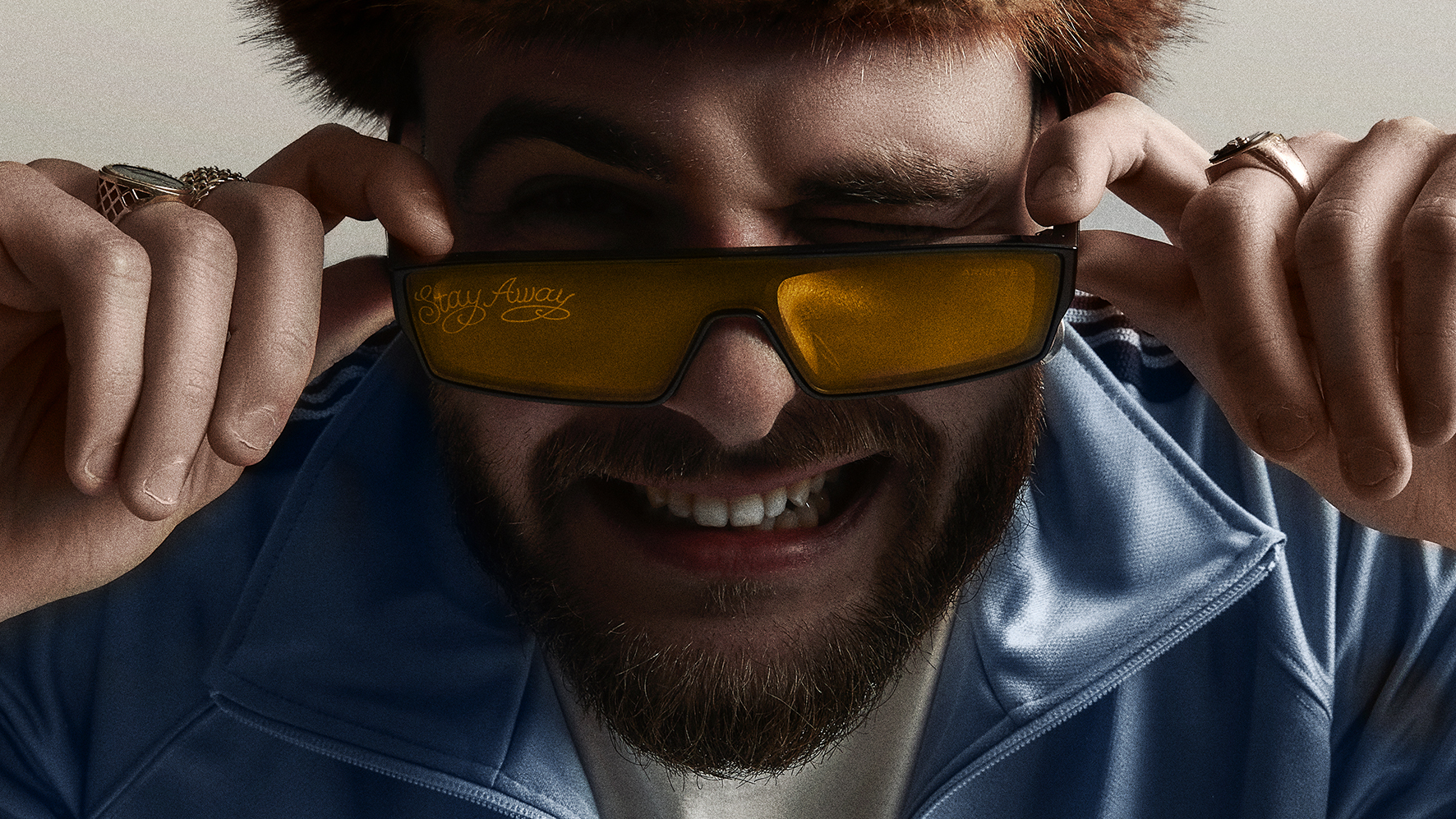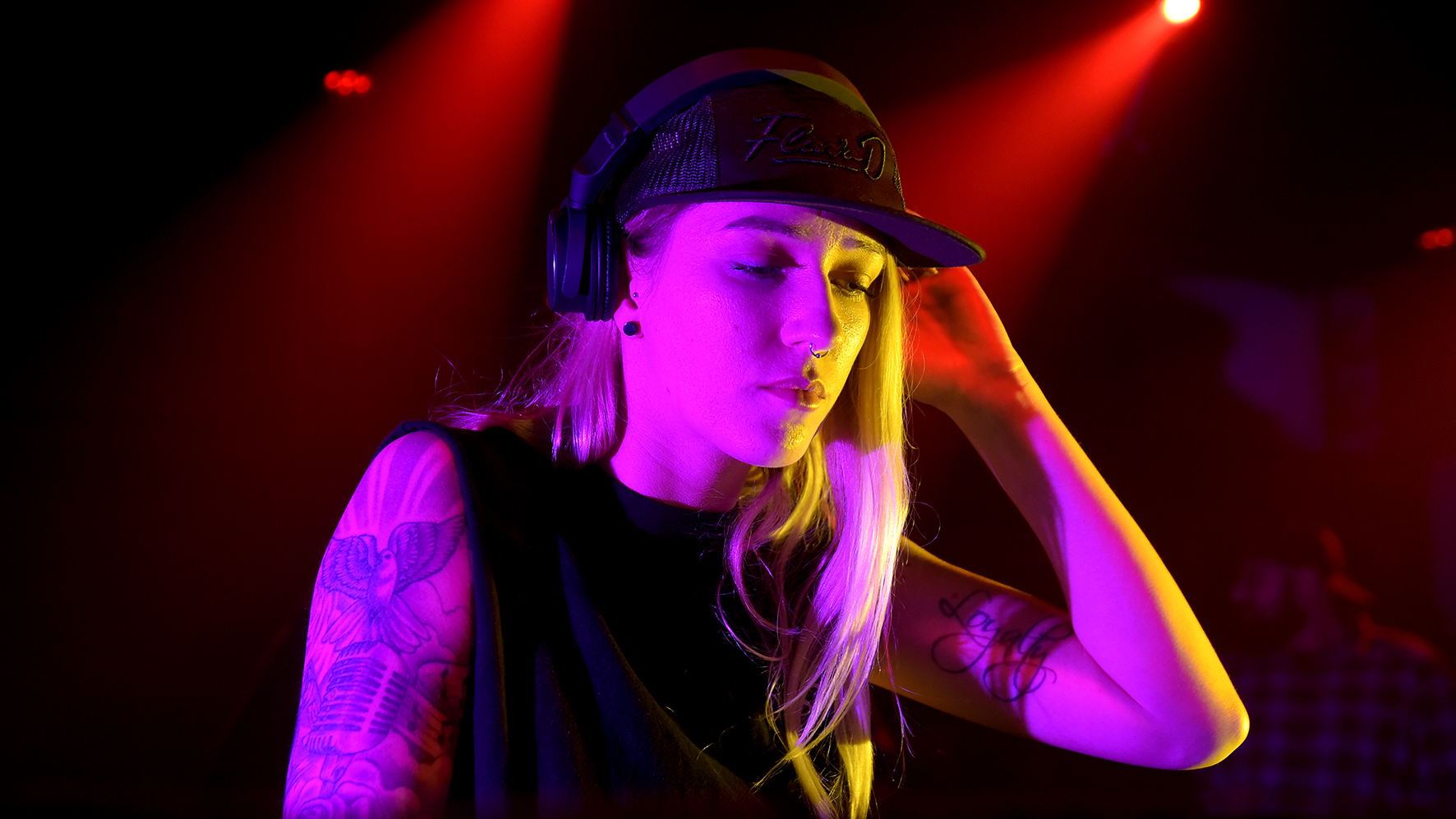Zero's 5 things I've learned in music production: "These days just making music isn’t enough. You need to be a real person that real people can connect with"
One of the most exciting names in bass music drops some knowledge for aspiring producers

It's 2022, and it's certainly safe to say that bassline's mid-'10s comeback was more than just a flash in the pan: the genre is now bigger than ever, and its rowdy beats and raucous synth lines are becoming an increasingly visible presence on both radio playlists and festival stages around the world.
One producer helping bass music stay fresh and relevant is Christian Williamson, better known as Zero. The Woking-born artist surfaced in 2017, riding the crest of the genre's resurgence with an high-impact approach to music-making and a winningly no-fucks-given energy that's helped him to become a beloved personality within the scene.
Mixing up hard-hitting solo productions with festival-ready edits of tracks like DJ Pied Piper's Do You Really Like It and Dizzee Rascal's Bonkers, Zero's quickly made a name for himself as a producer that's willing to test the limits of his sound, taking cues from dubstep, grime, techno and D&B to create future-facing music that transcends listener's expectations. We caught up with Zero to talk through his new mixtape as he shares 5 things he's learned in music production.
Tell us about the new mixtape you've got coming out. What vibe were you going for with this one?
“The idea for the Feel So Free mixtape is basically just to fully showcase all the different sounds and styles of bass music that I can create, I guess. I wanted to make an all-encompassing project that’s just full of variety and different flavours. I didn’t just want it to be seven absolute face-melters. Each track is unique in its own way and has its own identity.”
And your label BARCODES, what are you trying to achieve with this platform?
“For me, BARCODES is a home for artists that I rate so highly in the scene and a platform for them to share their most rave-ready, forward-thinking bass music.
Want all the hottest music and gear news, reviews, deals, features and more, direct to your inbox? Sign up here.
Music is the only thing I was ever really good at when growing up
“I want to use this platform to cultivate the young and most exciting talent on home soil, as well as introduce international artists to our market - those that are pioneering their own take on a UK bass sound. I must admit, it’s taken a slight backseat at the minute whilst I’m focusing on the Feel So Free mixtape, but I’ve got some really exciting releases ready in the pipeline for when it starts back up again.”
How about NUMBERS, the mix series - how long has this been going for and what can listeners expect from the next edition?
“About 4 years ago, I think, I released the first edition of NUMBERS. I always love putting them together and giving people an hour or so of absolute madness to listen to. It’s a great way for me to showcase the kind of sounds and artists that have struck me at that moment in time. 005 is the next one… and I've got something completely new and a lot bigger planned. I can’t wait to reveal what it is.”
How did you get started in music production initially?
“Music is the only thing I was ever really good at when growing up. I wasn’t very academic. But I learnt from quite a young age how to play the Trumpet and it kinda just went from there I guess cause after that I did music production at GCSE, then A-level and then at Uni. It became a massive hobby of mine, so much so that I stopped playing Xbox and just replaced it when producing music.”
UK bass is a crowded space. What do you think makes your sound different and sets you apart from the pack?
“I like to think one of the reasons people listen to my music is that I try to give each track a lot of character and its own identity, usually by combining lots of different underground genres and styles into each tune. I focus a lot on my sound design as well as quite aggressive punchy drums, which give my tracks quite a distinct sound in itself. So, all of that combined is what sets me apart, I hope!”

Zero's 5 things I've learned in music production
1. Listen to other genres and take inspiration
“Personally, I think it's so important to listen to all different types of music. The wider your musical taste the better. If you want to stand out from everyone else, you’ve got to bring something new and exciting to the table. You’re not gonna be able to do that if you just make one specific genre the exact way people before you have made it/how fans expect it to be typically made.
“Use weird sounds and vocals in different languages. Sample a door creaking and turn it into an airy washed-out atmosphere. Download a dark industrial techno sample pack and give you drums a new abstract spin to them.”
2. Imitation will only get you so far
“It’s fine to take inspiration from other artists and styles that you like, and I would advise this as it’s a good way to find your own sound. But be careful as you’ll only ever get so far if you try to completely copy and follow a sound that has previously been popular.

“It’s so easy to see someone blowing up and going down the same route as them. You need to remember that these artists will always be one step ahead, as their tracks will most likely be 6-12 months old already, and the stuff they'll be working on behind the scenes will be completely new and fresh. Be the artist who is ahead of the game and pushing new ideas.”
3. There's more to being an artist than just making music
“It’s all well and good being a great producer and DJ, but if you aren’t willing to get yourself out there and socialise/be a part of the community within your genre and even outside the genre you produce, you will limit yourself.
“These days just making music isn’t enough. You need to be a real person that real people can connect with and feel like they know. You want your followers to love your personality and character as well as the music you put out. They will stay fans for much longer and be a lot more invested in your journey.”
4. Learn your DAW like the back of your hand
“Use whatever DAW you want. It’s completely down to preference. There isn’t one in particular that's better than the other. People will say theirs is but that’s only because they’ve learnt it so well that it’s the best for them.
“You need to know exactly what everything inside your DAW can do, so that when you have an idea, you can just log on and unload everything from your brain into your computer, without any hesitation. Learning your digital workstation like this will take time, years even, which leads me to my final bit of advice.”
5. Be patient
“I’ve always thought with music if it's meant to be, and that everything happens for a reason, good or bad. Your musical project is not just an overnight development. It really is a journey and one that you need to put countless hours into. Just be patient and try to enjoy it as much as possible along the way.
“If you see someone blowing up don’t ever think it's happened overnight. It’s most likely that the artist has been grafting for years on end. You’re only just seeing them now as they’ve become popular amongst the wider masses.”
Zero's Party Right / Snake Charmer is out now.



I'm MusicRadar's Tech Editor, working across everything from product news and gear-focused features to artist interviews and tech tutorials. I love electronic music and I'm perpetually fascinated by the tools we use to make it.